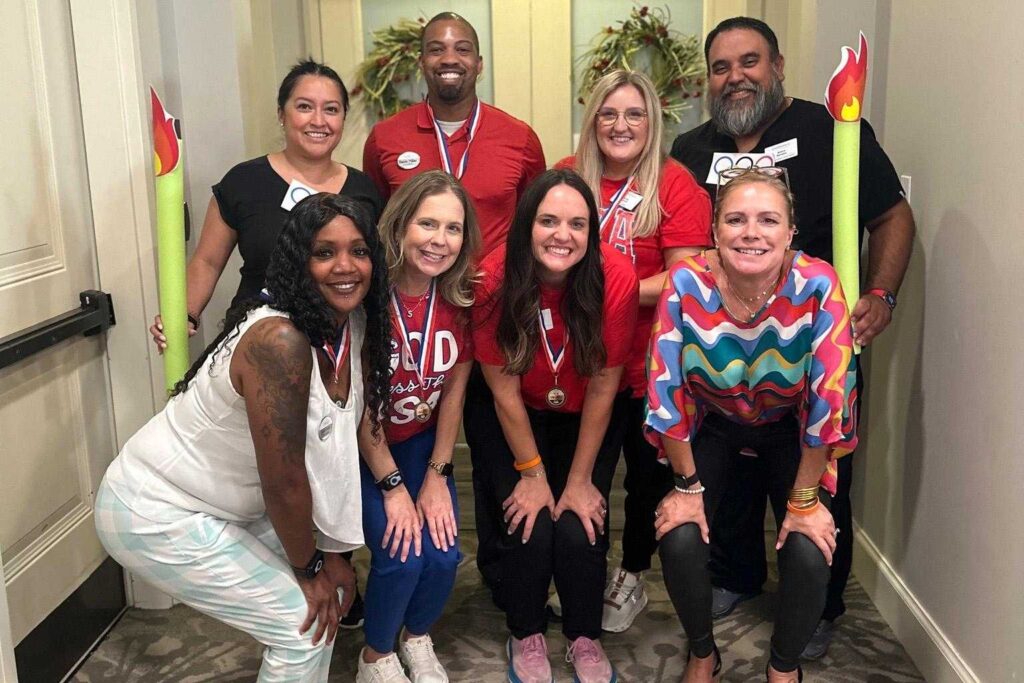You’ve started noticing changes. Maybe your loved one has been forgetting appointments, misplacing items, or repeating questions. You’ve taken on more than you expected — coordinating doctor visits, helping with medications, and making sure they eat.
It’s exhausting, and you may wonder what comes next.
If you’re here, you’re already thinking ahead. That’s something to feel good about.
Many family members wait too long before researching senior living and memory care options. Starting now means you’re giving your loved one the best shot at continued dignity and comfort.
At The Legacy at South Plains, we understand how difficult dementia care decisions can be. Our community offers both assisted living and memory care in Lubbock, Texas. We’ll explain the differences and help you determine which type of care is right for your family.
Assisted Living vs. Memory Care: What’s the Difference?
Assisted living supports older adults who need help with activities of daily living like bathing, dressing, meals, and medication reminders. Residents typically enjoy social activities and can manage many aspects of their day.
But for a person with dementia, assisted living may not be enough.
The National Center for Assisted Living reports that about 42 percent of assisted living residents have cognitive impairment. Most communities are not designed to manage progressive memory loss. That’s where memory care becomes important.
Memory care is a form of assisted living explicitly designed for people with Alzheimer’s and other types of dementia.
Why Specialized Memory Care Matters
According to a National Institute on Aging-funded study, researchers analyzed data from nearly 14,000 nursing homes and 3.2 million residents with dementia. They found that memory care communities with a higher concentration of dementia care residents provided better care.
Facilities with 90 percent or more dementia residents:
- Had lower hospitalization and emergency room rates.
- Contributed more skilled nursing hours per resident.
- Were more likely to include dedicated dementia care units.
Only 4 percent of U.S. nursing homes met this high level of specialization. These findings suggest that facilities built around dementia care deliver stronger results.
Families choosing between assisted living and memory care should consider this research. It shows that the type of care a community offers impacts a loved one’s health and quality of life.
Understanding the Levels of Dementia Care
Dementia progresses in stages. As it changes, so do your loved one’s needs. Understanding dementia care levels can help guide your next step.
Early Stage
- Mild memory issues
- Can manage most daily tasks
- Needs gentle reminders and a safe environment
Middle Stage
- Struggles with language, confusion, and recognition
- Requires help with meals, hygiene, and dressing
- May wander or become anxious in unfamiliar settings
Late Stage
- Limited verbal communication
- Full assistance needed for all activities of daily living
- Often requires help with mobility and medical care
Most assisted living communities support early to mid-stage needs. As dementia advances, residents benefit from dedicated memory care levels with trained team members, adapted environments, and smaller group settings.

What Are the Types of Dementia Care?
When considering your options, look at the types of dementia care offered. A specialized memory care program will:
- Use evidence-based practices adapted for memory impairments.
- Train all staff in dementia-specific behaviors and redirection techniques.
- Offer therapeutic social activities that support mental and physical health.
- Provide secure environments to prevent wandering.
- Encourage family participation and education.
Our Connections memory care program at The Legacy at South Plains is one such example.
Inside Our Connections Memory Care Program
We use a framework called Connect, Move, Learn, built to match all memory care levels. It’s designed to support cognitive decline and build a sense of purpose:
- Connect: We organize activities that create emotional bonds between residents and team members.
- Move: Cross-body physical movements help the brain and body.
- Learn: Cognitive stimulation through art, puzzles, and storytelling helps maintain function.
This memory care program uses neuroplasticity principles to form new brain connections. We also include sensory-based care like warm scented Oshibori towels before meals to support appetite and calm the nervous system.
Every element is built around the specific needs of the person with dementia, improving their comfort and sense of self.
What if I’m Still Deciding Between Assisted Living and Memory Care?
When you’re deciding between assisted living and memory care, start by asking these questions:
- Are they having trouble recognizing familiar people or places?
- Do they struggle to manage their medications on their own?
- Have they wandered or gotten lost?
- Are they experiencing behavioral changes or mood swings?
- Do they need help with multiple activities of daily living?
If you answered yes to more than one, they may need a higher level of care than what traditional assisted living offers.
“After researching and touring several Lubbock assisted living facilities, my father chose The Legacy at South Plains for my mother. Perhaps his choice was based on the calming environment, lovely rooms, and professionalism of the staff who greeted us for the tour. Connections was perfectly suited for her. Dad visited every day, and the staff became his new friends. Their care extended to him as well.” — Family Member Google Review
Whether you are a spouse or adult child, memory care is available to strengthen your relationships.
What About Specific Conditions Like Lewy Body Dementia?
Alzheimer’s is the most common cause of dementia, but other types of dementia, like Lewy body dementia, frontotemporal dementia, or vascular dementia, may require different approaches.
Memory care communities often train team members to recognize the differences between these medical conditions and adjust care plans to suit them.
Helping Families Regain Time and Peace of Mind
One of the greatest challenges for family members is feeling overwhelmed by caregiving. When a loved one enters memory care, families often find they can reconnect in meaningful ways.
At The Legacy at South Plains, we support caregivers as much as residents. We offer:
- Monthly support groups open to the public
- Educational events about dementia care
- Frequent updates and collaborative care planning
These services are part of our commitment to helping families through every step of dementia care decisions.
A Place Where Specialized Care Makes the Difference
Assisted living and memory care under one roof gives older adults access to different support as their needs change. Whether your loved one is just starting to forget a few things or should have help with every part of the day, we can help you plan with clarity.
Choosing the right type of care is not easy, but it’s a decision that can improve well-being, dignity, and peace of mind. You don’t have to make it alone; contact The Legacy at South Plains in Lubbock today to learn more about our memory care and assisted living services.
